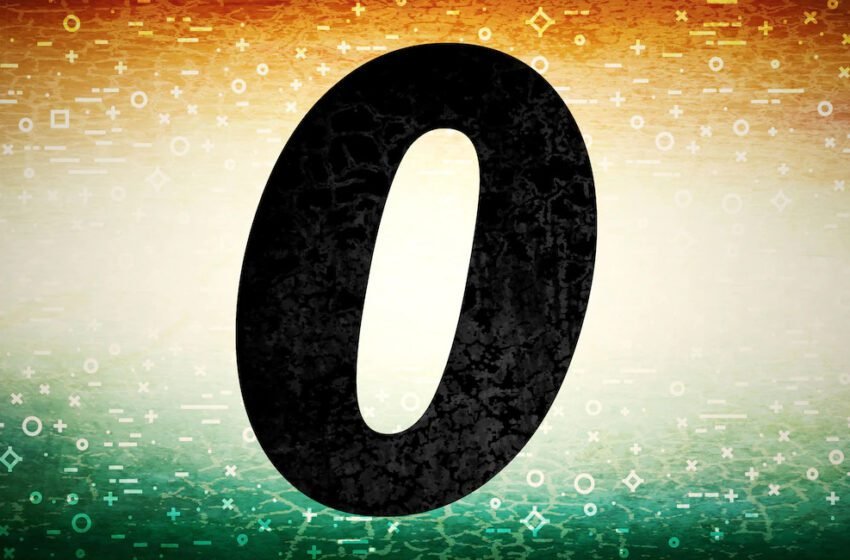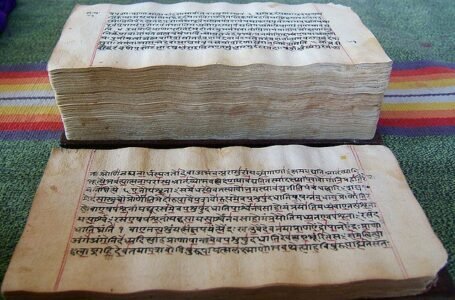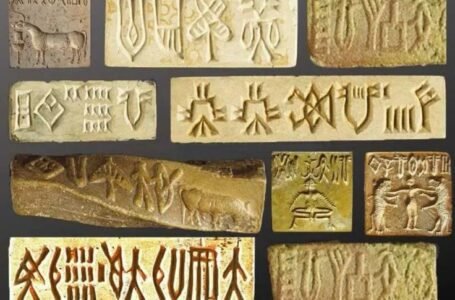The Concept of Zero and Its Impact on the World

Zero, It’s a number we encounter so often, yet it’s almost invisible in our daily lives. When we write it, say it, or think about it, it doesn’t seem as significant as its counterparts—one, ten, or a hundred. But what if I told you that zero is one of the most powerful, transformative ideas humanity has ever had? That the concept of zero wasn’t always as simple as it seems today, and its journey through history changed the course of civilizations? Zero didn’t just revolutionize mathematics; it reshaped how we think about life, existence, and the universe itself.
To fully understand the profound impact of zero, we need to travel back in time to see where it all began. It’s not something that appeared overnight, but rather, it’s a concept that evolved over centuries. And India plays a critical role in this fascinating story.
The Origins of Zero in Ancient India
Long before zero became a number in the Western world, India was home to one of the most revolutionary mathematical ideas in human history. Ancient Indian mathematicians were the first to recognize that “nothing” could actually be something—a concept that’s hard to grasp but incredibly important. Around 5th century CE, Brahmagupta, an Indian mathematician, was among the first to define zero as a number in its own right. He didn’t just treat it as a placeholder but understood its mathematical significance. In his work Brahmasphutasiddhanta, he formulated rules for arithmetic involving zero, such as how to add and subtract it.
This wasn’t just an abstract idea. Zero was a practical tool that helped with everything from astronomical calculations to understanding the universe. But this was not just an isolated Indian discovery—this concept of zero traveled westward and sparked a chain of events that would change the world.
The Arab World: The Bridge Between India and Europe
The ideas of ancient Indian scholars, including zero, traveled to the Middle East through Arab traders and scholars. By the 8th and 9th centuries, scholars in the Islamic Golden Age, such as Al-Khwarizmi and Al-Battani, had started using the Indian numeral system, which included zero. The Persian mathematician Al-Khwarizmi, in particular, was instrumental in spreading these concepts. His work laid the foundation for modern algebra, and he included zero in his equations, giving it a place in mathematics.
In the 12th century, the translation of Arabic texts into Latin brought this mathematical knowledge to Europe. This was a game-changer. Before the introduction of zero, Europe relied on the cumbersome Roman numeral system, which was ill-suited for more complex calculations. Zero was the missing piece that made everything easier.
The West: A New Era in Mathematics
It was through figures like Leonardo Fibonacci, an Italian mathematician, that zero became firmly established in Europe. In his book Liber Abaci (1202), Fibonacci introduced the Hindu-Arabic numeral system, including zero, to Europe. This opened the door to a revolution in mathematics. Suddenly, the ability to perform complex arithmetic became far more accessible. Multiplication and division were no longer a headache; simple place-value notation allowed for quicker, more efficient calculations. This shift helped spark the Renaissance and, later, the Scientific Revolution.
Zero didn’t just improve daily calculations; it enabled new fields of thought. For instance, during the Renaissance, figures like René Descartes used zero to develop the Cartesian coordinate system, which laid the groundwork for modern geometry. And in the 17th century, zero became central to the development of calculus by Isaac Newton and Gottfried Wilhelm Leibniz. Calculus, in turn, would go on to reshape our understanding of everything from physics to engineering.
Zero’s Role in the Scientific Revolution
Zero’s significance wasn’t just confined to mathematics; it played an essential role in the birth of modern science. The concept of zero helped shape our understanding of the universe. Think of temperature, for example. The idea of absolute zero—the lowest possible temperature where all motion ceases—was proposed in the 19th century, and it revolutionized thermodynamics. Without zero, this key concept would have been impossible to understand.
Zero also helped define the laws of physics. In space, for instance, the idea of zero gravity helped scientists think about how celestial bodies move and interact. In fact, many of the greatest achievements in science—from the theory of relativity to quantum mechanics—depend on the mathematical manipulation of zero.
Zero and Computing: The Digital Age
Fast forward to the 20th century, and we enter the digital age. The advent of computers and the rise of digital technology would have been impossible without zero. In binary code, everything is represented by combinations of zero and one. These two symbols form the foundation of all modern computing. Imagine a world without computers—no smartphones, no internet, no digital entertainment. The very existence of the digital world we live in today owes itself to zero.
One might think of zero as an empty space, an absence of value, but in the world of technology, zero is as valuable as it gets. It enables machines to process information, control complex algorithms, and make decisions. The simple presence of zero and one allows for the creation of artificial intelligence, machine learning, and even the architecture behind self-driving cars.
Zero in Philosophy: The Nature of Nothingness
Zero is more than a mathematical concept; it’s also a philosophical one. It challenges our very understanding of existence. In Western philosophy, the idea of “nothing” has been a subject of deep contemplation. Ancient Greek philosophers like Pythagoras and Plato saw “nothingness” as an unknowable void. In contrast, in Indian philosophy, particularly in Buddhism and Hinduism, zero (or nothingness) is seen as something far more profound. It’s not an empty absence but a space of infinite possibility, from which everything can emerge.
This perspective of zero as a space of potential influenced much of Eastern thought and, in some ways, permeated Western thinking as well. The concept of zero allowed philosophers to ask larger questions about the nature of reality, existence, and the universe. What does it mean to be? What is the essence of nothingness? These are questions that zero—this simple number—forced people to consider.
Zero Today: Essential to the Modern World
So, where does zero stand in the world today? It’s embedded in everything we do. Whether it’s in the way we calculate our finances, the way we measure time, or the way we navigate the internet, zero is an integral part of modern life. It’s hard to overstate just how central it is to the world we live in.
Zero has allowed us to make sense of the world in ways that were once unimaginable. It’s at the heart of modern mathematics and the sciences. It’s the basis of digital technology, space exploration, and even artificial intelligence. It has enabled human progress in countless ways, allowing us to chart new frontiers in both the material and intellectual worlds.
Conclusion: A Revolution in Thinking
Zero, in its many forms, is a testament to human creativity and intellectual advancement. What began as a humble concept in ancient India has evolved into one of the most profound and far-reaching ideas in human history. From mathematics and science to philosophy and technology, zero has shaped our understanding of the world. It’s an idea that proves that sometimes, nothing is everything.


